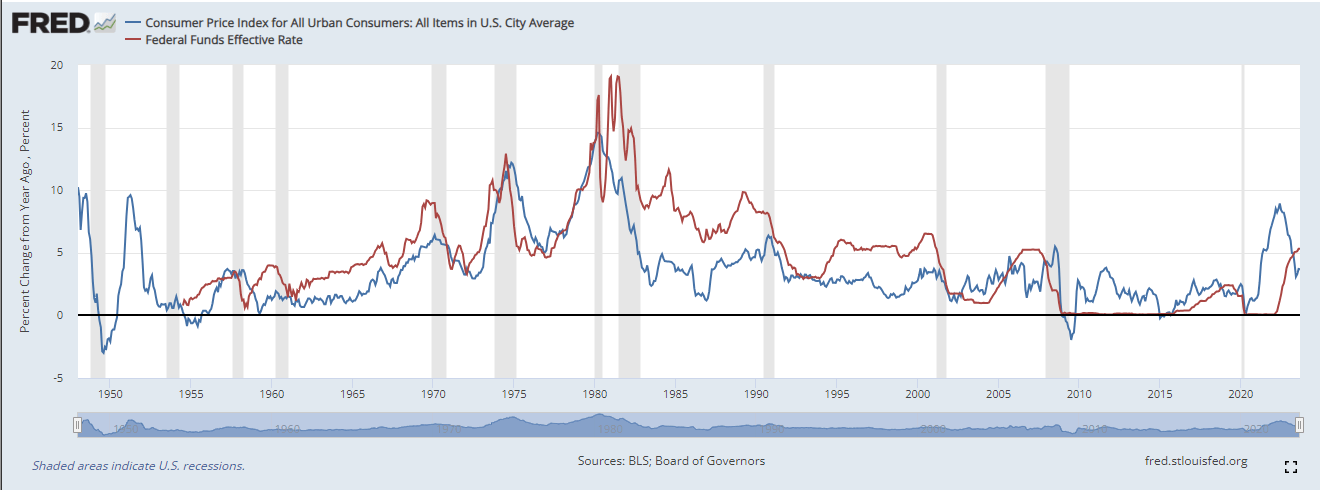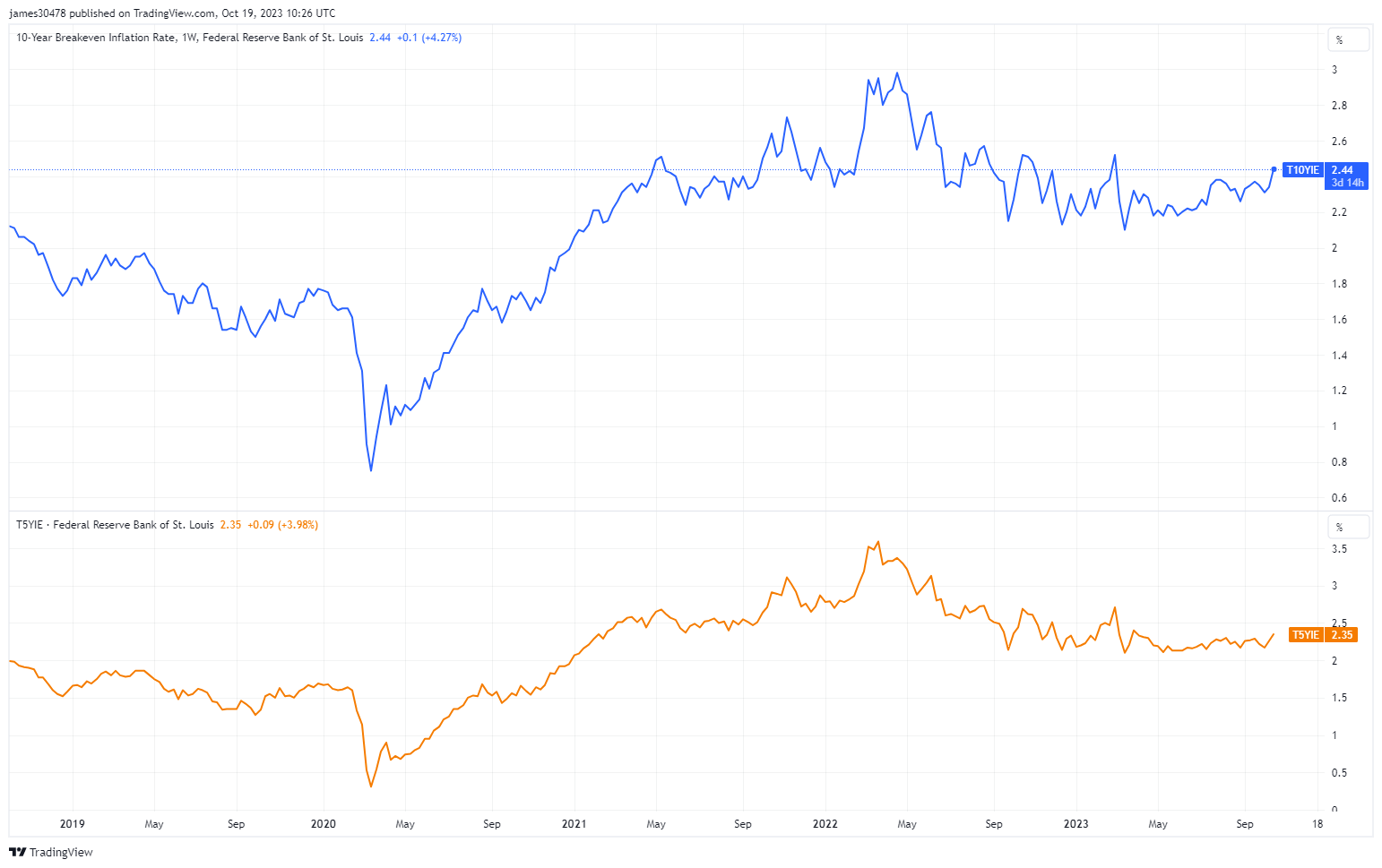 The 10-year breakeven inflation rate has reached the second-highest level in 2023
The 10-year breakeven inflation rate has reached the second-highest level in 2023 Quick Take
Since 2010, the U.S. financial landscape has primarily been marked by the Consumer Price Index (CPI) inflation rate outpacing the federal funds rate. However, this trend experienced an exception in 2019, and interestingly, in May 2023, when the country entered a period of positive real rates – a scenario where the federal funds rate, currently at 5.33%, exceeds the CPI inflation rate, presently recorded at 3.68%. Despite this dynamic, yields persistently continue their upward trajectory across the yield curve.
Despite positive real rates, the continuous escalation in yields signals that the measures taken by the Federal Reserve may be insufficient in effectively curtailing inflation and steering it back towards the designated 2% target.

The bond market appears to cast doubt over the U.S. financial authority’s claims of returning to the 2% inflation benchmark. This skepticism is driving yields higher. Reinforcing this sentiment are the surging inflation expectations. According to recent data, 10-year inflation expectations have reached 2.44%, marking the second peak this year, while the 5-year expectations stand at 2.35%, exceeding the 2% target.

These developments prompt a compelling inference: To curb rising inflation, the Federal Reserve may have to persist in augmenting rates, a strategy which, ironically, might contribute to the continual rise of yields.




 CryptoQuant
CryptoQuant 










































































